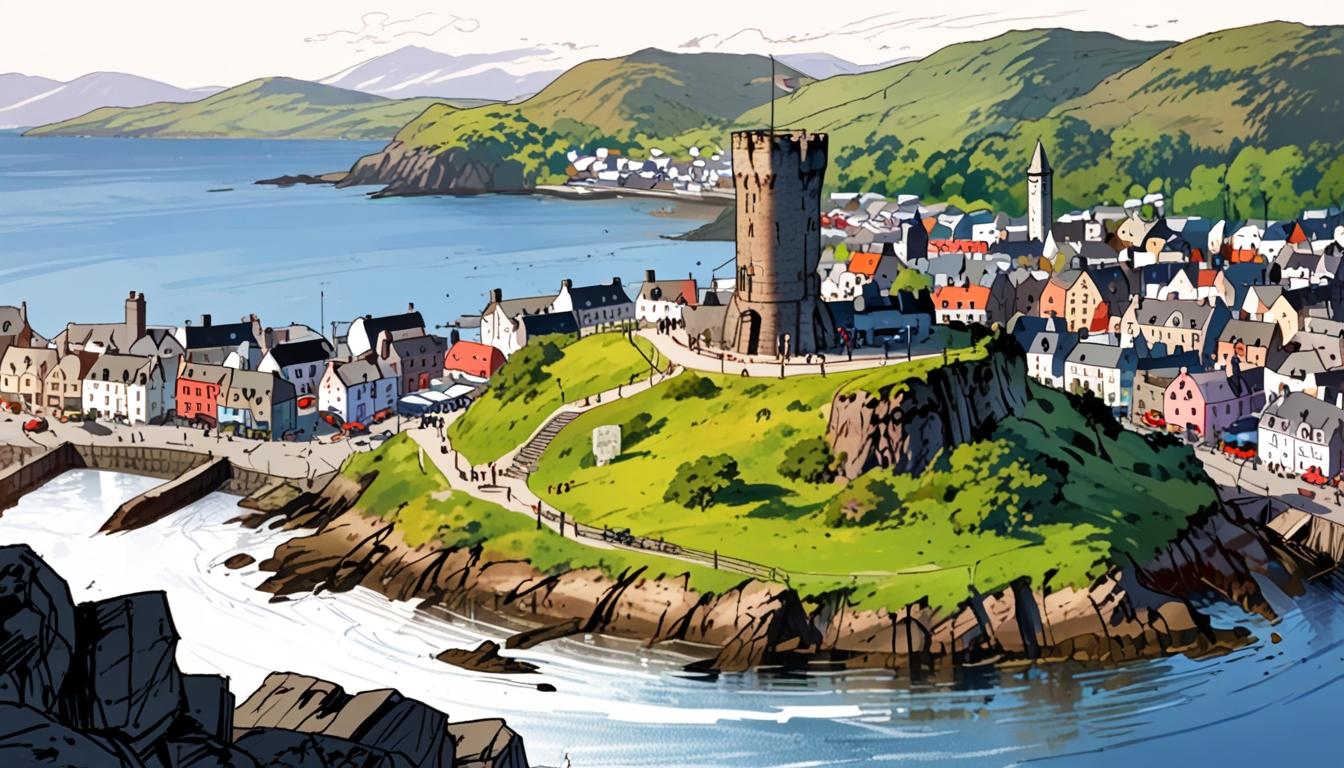Oban, a picturesque seaside town nestled on the western coast of Scotland, has become a magnet for tourists, particularly Americans eager to explore their Scottish heritage and indulge in the region's renowned seafood. Each summer, the modest resident population of roughly 8,500 swells to more than 25,000 as visitors flock to enjoy the breathtaking scenery and rich historical offerings. However, this influx comes at a significant cost for local residents, who find themselves grappling with an escalating housing crisis largely driven by a proliferation of second homes and short-term rentals.
Out-of-town investors have capitalised on Oban's popularity, purchasing local properties and transforming many into holiday homes. Recent reports indicate there are now over 1,000 Airbnbs in the area, alongside 224 registered second homes. This phenomenon has forced many locals to compete for limited accommodation, impacting essential services, including access to healthcare. John Cuthbertson, manager of the local grocery store Food from Argylle, voiced concern, stating, "The whole town is AirBnB now," highlighting how the swelling rental market has limited options for both residents and professionals, such as dentists, who are critical to community health.
The severity of the situation has led to a declaration of a housing emergency by Argyll and Bute Council, marking a historical first for Scotland. The council received a barrage of applications for short-term lets, with a staggering 3,370 submissions noted in December alone. Local business leaders are increasingly voicing their frustrations. Wendy King, owner of George Street Chip Shop, lamented the difficulties faced by professionals seeking to relocate to the area due to a dearth of available housing options.
This urgent housing situation has been compounded by the rise in social housing waiting lists, with approximately 3,209 households seeking accommodation in Oban and surrounding areas as of 2023/24. A recent survey revealed that 92% of respondents felt that the housing shortage was adversely affecting their community, while three-quarters of local employers encountered difficulties in hiring due to inadequate housing availability.
In response to the crisis, members of the Oban Community Council are advocating for a ban on short-term lets, arguing that the shift from long-term rentals to lucrative holiday lets is exacerbating the housing shortage. They propose that landlords should be mandated to offer properties for longer periods, thus easing the strain on the rental market for local residents. Some statistics underline this argument: 42% of recent property sales were attributed to buyers from outside the Argyll and Bute area, which has raised alarms among community leaders.
As the local economy increasingly depends on tourism, there is a duality to the sentiment felt by residents. While businesses thrive with the influx of tourists, the impacts of this popularity — overcrowded streets, traffic congestion, and inadequate public facilities — strain the very fabric of community life. Gordon MacGillivray, owner of MacGillivrays Seafood Grill, noted the need for improved public amenities, such as more toilets and parking facilities, to accommodate the growing number of visitors.
Moreover, Argyll and Bute Council has begun implementing an action plan to address housing shortages. Starting in April 2024, a 100% council tax premium on second homes is set to be introduced, aimed at encouraging homeowners to either sell or rent their properties. The council has also pledged to build 375 affordable homes at Dunbeg, with plans for an additional 430 homes in the pipeline. These measures could represent a vital step towards striking a balance between the accommodation needs of locals and the lucrative holiday rental market.
Despite these efforts, the overall sentiment among residents remains one of caution. Many locals cherish the town's beauty and community spirit, exemplified by the enchanting vistas from McCaig's Tower, yet they are increasingly concerned that the town’s charm may be overshadowed by a relentless influx of tourists and second homeowners.
The challenges facing Oban highlight a broader issue affecting many coastal towns across the UK: the tension between tourism-driven economic growth and the imperative to preserve community integrity and living conditions for locals. As the town navigates its housing crisis, it remains to be seen whether current measures will sufficiently mitigate the impacts of an ever-burgeoning tourism economy while safeguarding the needs of its long-standing residents.
Reference Map
- Lead article
- Article (2)
- Article (3)
- Article (4)
- Article (5)
- Article (6)
Source: Noah Wire Services
